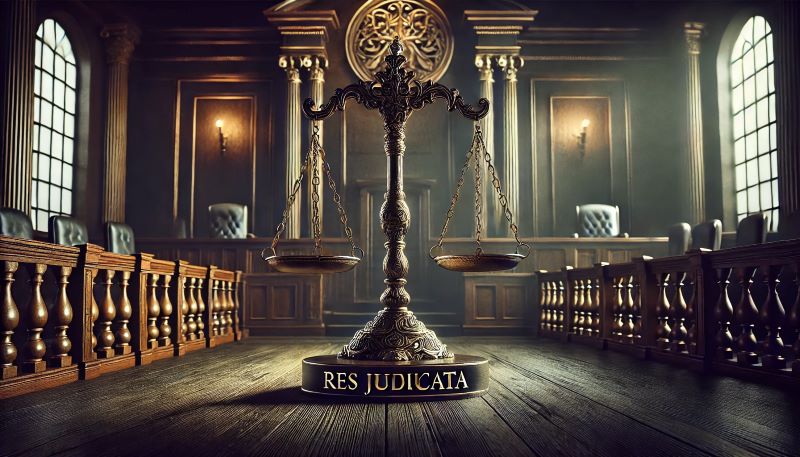
Res Judicata is a legal principle rooted in the idea that legal disputes should have finality. Derived from Latin, Res Judicata means “a matter judged,” and it ensures that once a court has resolved a dispute, the same parties cannot litigate the same matter again. This principle is fundamental to the efficiency and credibility of the judicial system.
Res Judicata is an affirmative defense, meaning the defendant must specifically plead the defense if they believe the allegations against them involve a previous dispute already settled by a court. The elements of Res Judicata include 1) a prior final judgment 2) identity of the parties and 3) a second action being brought that arise out of the same claims.
Res Judicata in Civil Law vs. Double Jeopardy in Criminal Law
While Res Judicata applies to civil law, the concept of finality also exists in criminal law under the term “Double Jeopardy.” Both principles aim to prevent repeated litigation or prosecution related to the same transaction or occurrence of events. Double Jeopardy ensures that a person cannot be tried twice for the same crime once acquitted or convicted, as protected by the Fifth Amendment of the U.S. Constitution. Res Judicata, however, addresses civil cases and prevents the re-litigation of claims that have already been resolved by a competent court.
Why Res Judicata Matters
Res Judicata is not just about preventing redundant lawsuits; it ensures respect for the court's rulings and helps conserve judicial resources. It provides closure to litigants and stability in legal relationships. Without it, individuals and businesses could face continuous legal uncertainty, undermining trust in the judicial process.
All information provided on Silblawfirm.com (hereinafter "website") is provided for informational purposes only, and is not intended to be used for legal advice. Users of this website should not take any actions or refrain from taking any actions based upon content or information on this website. Users of this site should contact a licensed Texas attorney for a full and complete review of their legal issues.
